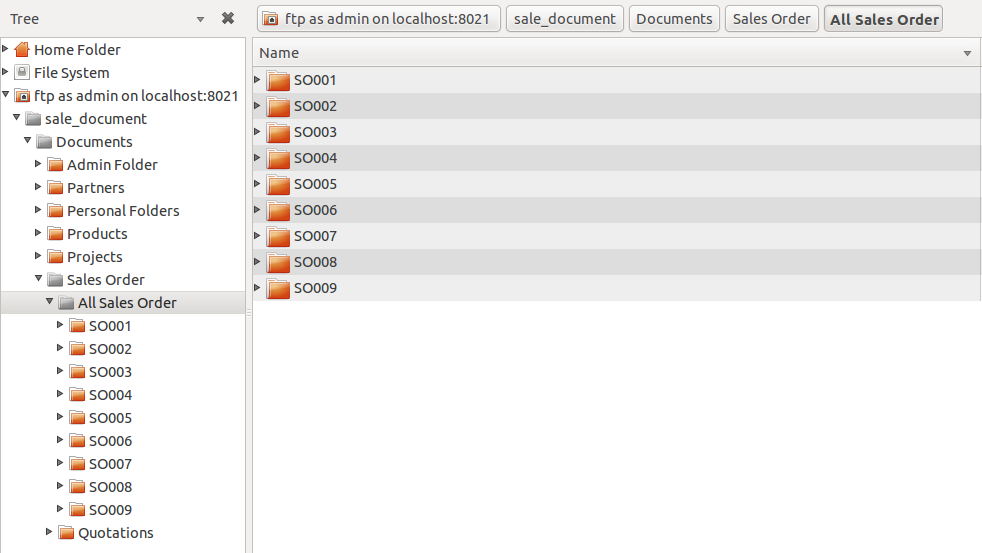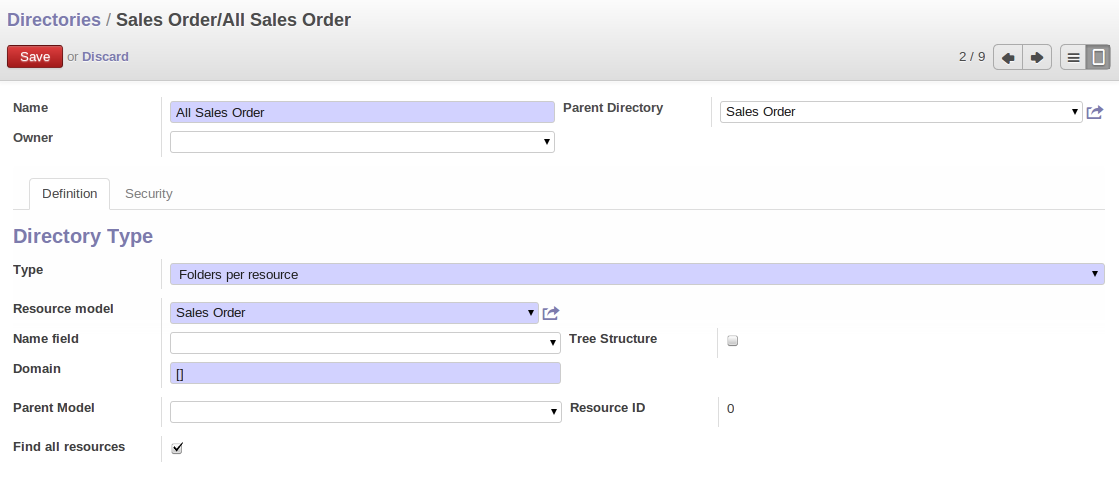Mapping between Odoo ERPOnline Resources and Directories
Each directory can either have the type Static or Folders per resource. A static directory, as with operating systems, is the classic directory that can contain a set of files. On the other hand, the directories linked to systems resources automatically possess sub-directories for each of the resource types defined in the parent directory.
To keep them synchronized to the working language, directory names are not translatable. But Odoo ERPOnline's demonstration data automatically creates directories in English. You can rename them through the menu Knowledge > Configuration > Document Management > Directories.
For example, you can look at the directory shown in Documents > Sales Order > All Sales Order. You will see the directory for all the orders present in Odoo ERPOnline that was created automatically by the system.

Orders in Odoo ERPOnline

Directories representing all the orders in the document management system
Directories can follow a tree structure, like the tree of resources in Odoo ERPOnline. For example, if you go to the directory Documents > Projects you will see the structure of the analytic accounts.
To define a directory containing a specific type of resource, you have to define parameters when you define the directory itself from menu Knowledge > Configuration > Document Management > Dictionaries:
Type: Folders per resourceResource model: Choose one of the system objectsDomain: an event filtered so that it sees only a subset of the resourcesTree Structure: to show the resources hierarchically

Configuration of the directory containing All Sales Orders
This is a very flexible approach because any modification of the resource in Odoo ERPOnline is automatically reflected in the document management system. So when the quotation gets confirmed in Odoo ERPOnline the directory no longer appears as a quotation through FTP access.
Here are some examples of directories linked to Odoo ERPOnline resources that could be helpful when configured in the document management system:
- Quotations and Order: storing documents that relate to orders,
- Products: for storing products technical datasheets,
- Users: to automatically define a directory owned by each user of the system,
- Employees: to store documents about employees, such as their CVs, your interview notes, contract details, and their annual assessments,
- Support Requests: storing items about requests or about technical support responses,
- Analytic Accounts or Project: to store project management and tracking documents.
